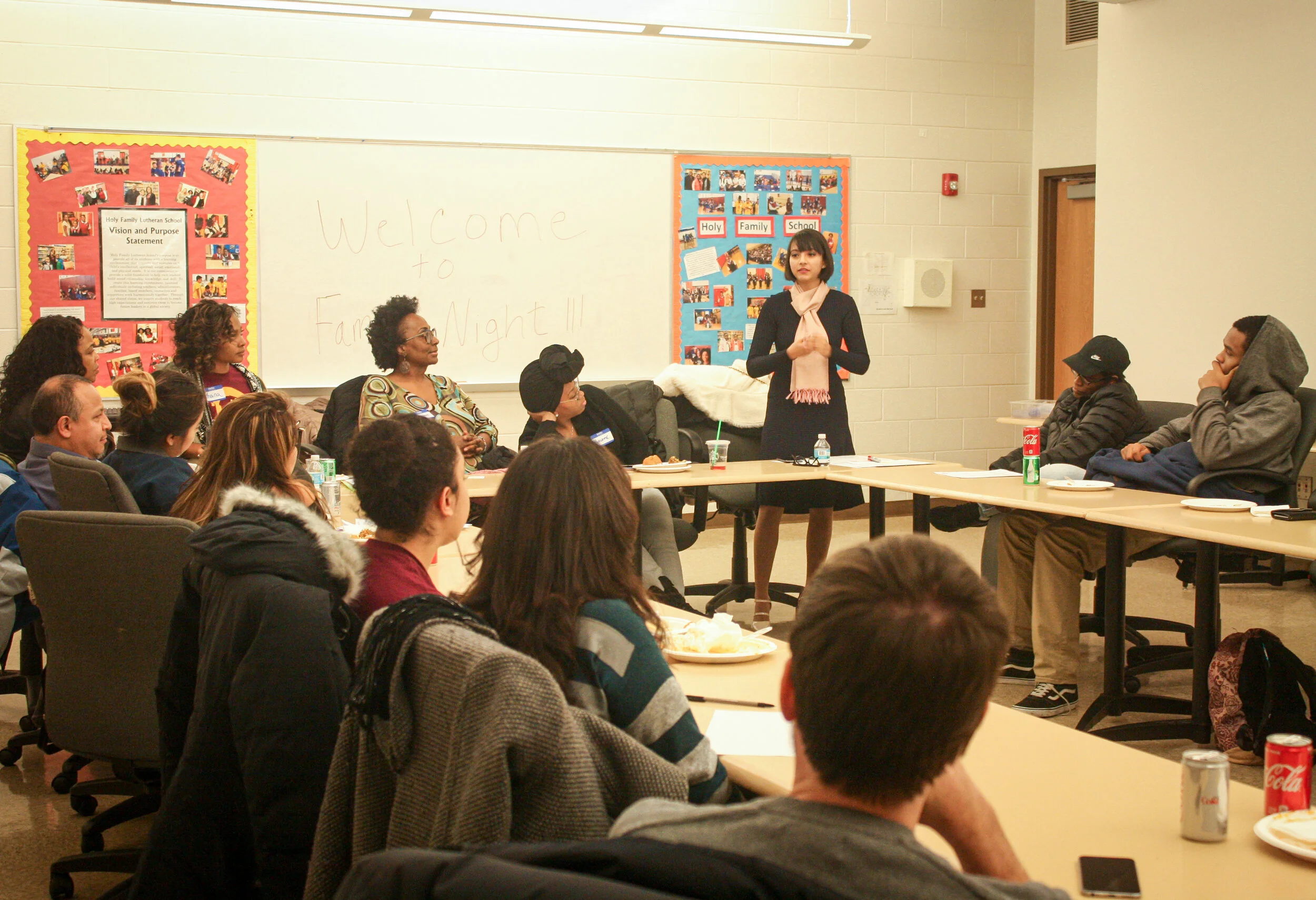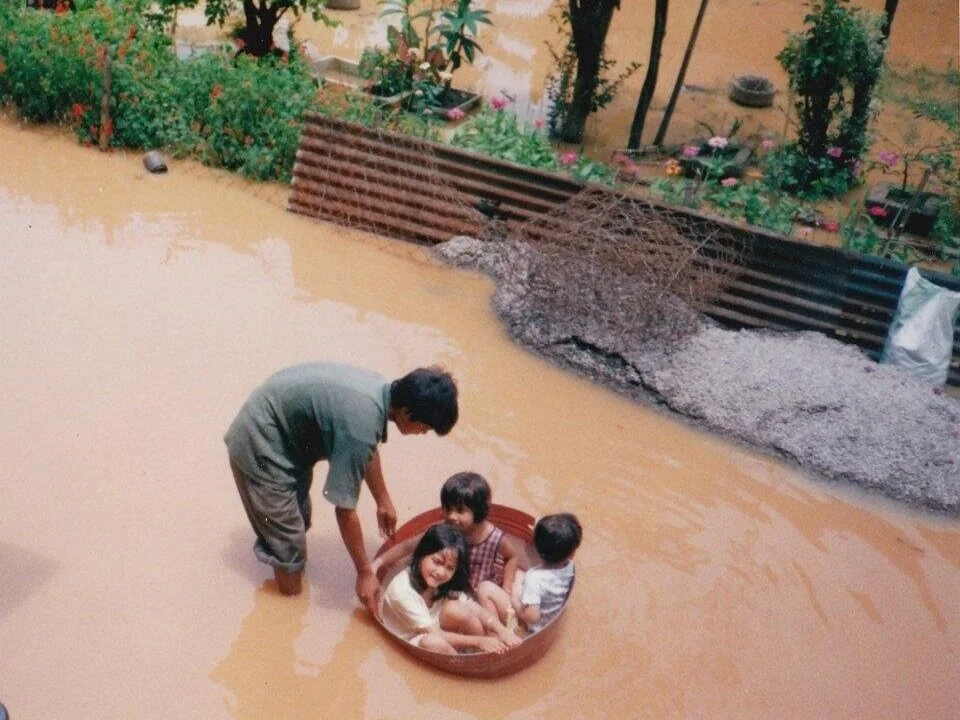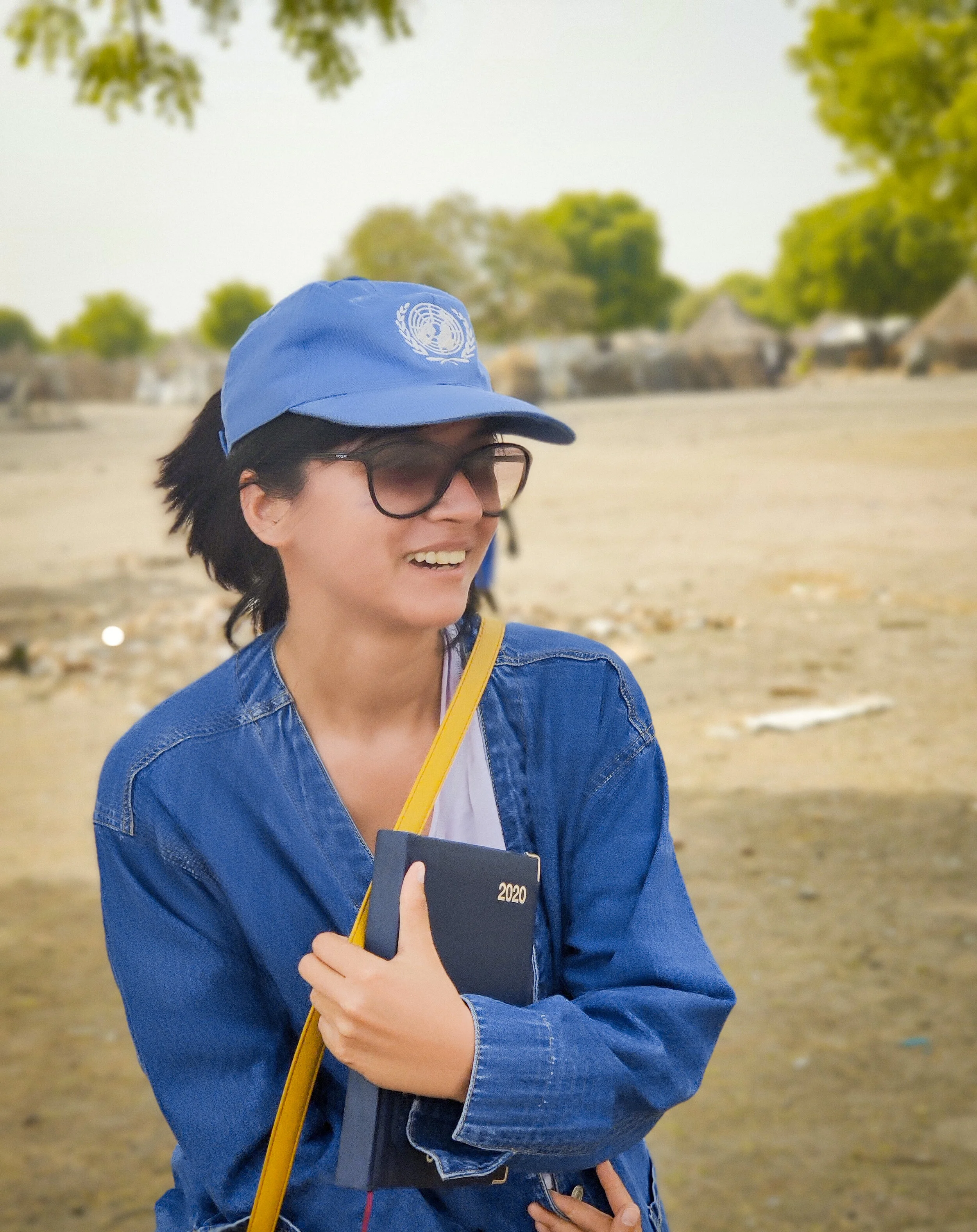Educating and Empowering Communities - Conflict Transformation
Rhea Mahanta
Clinton Global Initiative University (CGI U)
Rhea Mahanta is the Founder & President of The Peacebuilding Project.
What is your peace project?
I started The Peacebuilding Project (PBP) in 2017 when I was studying my M.A. in International Relations, at the University of Chicago. This organization is dedicated to conflict resolution, peacemaking, and humanitarian action. The main aim of the organization is to educate and empower communities to explore effective ways to respond to conflict.
Our mission is to provide the tools and the skills for people to adopt peacebuilding in their everyday lives. We provide these tools through workshops and academic training programs to educate people and the communities about peace processes. We have had sessions on how to practice mediation, on women in peace and security, on religion, and on peacebuilding through interfaith dialogue. We also conduct dialogue forums on various subjects.
Complementary to this academic aspect, we also have a humanitarian component. The people who we are training are the same volunteers who work with partner organizations to either provide humanitarian services or publish research articles. We have organized donation drives for Syrian refugees in the U.S. and have worked with Rohingya refugees in India.
What inspired you to start this?
When I applied to study in the U.S. as a student, my motive was to deepen and expand my knowledge on conflict resolution and diplomacy. University of Chicago is a very research-oriented university. There are a lot of institutes that study global conflicts, but I found that it was lacking a study of the peace processes by which we may resolve those conflicts.
In the University of Chicago community, they were not as aware about the field of conflict resolution as I personally was and wanted to further specialize in, so I thought it was a great place to start a conversation since there were no existing organizations or institutes talking about these peace and transformation processes. I thought I might as well start it myself and fortunately, I got a lot of support from the university.
What does PBP and its volunteers do?
PBP is specifically dedicated to educating and empowering communities on the topic of conflict transformation and peacebuilding in a two-fold manner:
i) Academic instruction and research - organizing workshops, training sessions, speaker series, publications, etc.
ii) Civic engagement and outreach activities - through volunteering, donation drives, advocacy and campaigns.
The project has conducted events and training programs on conflict transformation & mediation’; women in peace & security’; religion and peacebuilding’; war, exile and refugees; israeli-palestinian coexistence, and more.
We do a lot of work around refugees because we want to ensure that refugees become not just passive recipients of humanitarian assistance, but leading advocates for peace. Our volunteers worked as teachers in a Rohingya Literacy Program for refugees in India and supported in providing quality education. We organized donation drives for refugees in the U.S., participated in clean-up drives with the Rohingya Human Rights Network in India, and also organized community dinners between Syrian refugees and host communities to promote peaceful coexistence.
Our volunteers also organize Book Club events on matters of international affairs to cultivate a culture of peaceful dialogue, and organize campaigns around various Sustainable Development Goals such as the “Green Diwali” campaign on climate action, and a letters campaign to promote and strengthen democracy and civic participation.
What challenges have you faced since starting?
It was easier for this organization to function when it was under the auspices of a university. When we organized events, we could apply for funding or have spaces we could use. Since leaving university, the project has expanded its operations to India but it’s been more challenging to find the support and the necessary resources needed to carry out. Also, because we have never been registered anywhere, either as a student organization at the University of Chicago or as a NGO in India, there are certain limitations we have in terms of funding.
Right now, I have a team of very dedicated volunteers who work from India and are all students. These students are mostly college students, but we have also had high school students volunteer with us - we even have one high school student volunteering all the way from Singapore! We think it's great that these students are so socially conscious and engaging from such a young age (if they can manage to balance their studies and volunteer work). It's also a great learning opportunity for them to be able to get an insight into what their field of interest looks like.
Because I am not currently based in India and not on the ground participating in many of these projects, it inspires me to see my team of student volunteers be so engaged.
Do you have any challenges finding volunteers?
Yes, we did face challenges finding volunteers when the organization first started, mostly because it was very difficult to be sure of how dedicated the volunteers were. A lot of people may want to volunteer initially, but their level of commitment may change over time. That is actually where CGI U helped me out — I was really struggling at that point because we had volunteers who were not contributing in any sort of meaningful way to the project. The engagement was lacking, so keeping our team of student volunteers continuously inspired was a major challenge.
Getting volunteers is a give-and-take process. You have to offer them something worthwhile in exchange for their time and effort - whether it is experience, or credibility, or guidance. As a new organization, it is incredibly hard to define what that return is for the volunteer. So unless the organization is able to gain recognition on its own for what it stands for and what it offers, one has to find creative ways of appealing to the audience. CGI U was very helpful in that sense, because it recognized the project’s vision and saw potential in our growth, which in turn lent legitimacy to PBP.
Right now, we don’t have a challenge in finding volunteers, but in managing them. There are new challenges that come about with the growth of an organization, mainly with regards to coordinating and synchronizing how different teams within the organization work together, such as the Research Team vis-a-vis the Advocacy Team vis-a-vis the Social Media & Communications Team, and so on.
What resources would be most helpful?
At the University of Chicago, we used funding from the university to book venues and catering for food because that gave people more incentive to attend our events to learn more about our work.
For our volunteers in India who participate in 4 month-long programs such as the Rohingya Literacy Project, we would love to help cover the costs of their travel getting to and from the refugee settlements or venues for our meetings or dialogue forums.
We would also love to have the resources to build a proper website. We have operated for two years without one, and unfortunately, no one on our team of volunteers has the skills necessary to build it the way we want it. Having a website means a significant amount of maintenance and handling privacy/ security concerns, so we would have to bring in someone professional.
What advice do you have from what you have learned?
It may not be applicable to other people, but what has helped me tremendously is to be an expert in my field, especially a more niche field such as mine. When you are starting an initiative, your peers will look up to you for guidance — it is better if you are not completely clueless about the issue area. There will be many different kinds of challenges that you will face along the way and you may even fail at achieving some targets, but the one thing no one can take away from you is knowledge.
How did you find out about CGI U?
I was studying at the University of Chicago and the CGI U 2018 annual meeting was being held at the university that year. We had a separate application process for our students to apply, and close to 200 people from the University of Chicago submitted applications - PBP was one of the projects selected, and at the time it was in its nascent stage. I had already organized one or two events by that time, so the idea for PBP was already in my mind; however, CGI U really helped me solidify this commitment and go about developing my project in a structured way.
How has CGI U influenced your career?
CGI U has definitely influenced my career, and I would say it was the springboard for PBP to flourish.
Once we became officially recognized through CGI U, it was easier to recruit volunteers because they all wanted to be a part of something bigger— something perceived as a bit more established and acknowledged by a reputable source in the international community. By its very nature, the Clinton Global Initiative is global, and that inspired more volunteers to join our global peacemaking cause.
The CGI U annual meeting at the University of Chicago also influenced me greatly. They had many different skills sessions students could attend — the most helpful sessions for me were about strengthening the resilience of your organization and how to manage your organization as a leader or as a founder. It was just what I needed because at that time, I was quite clueless about how to manage a team of people and how to motivate a team of people. The skills sessions provided me with guidance on how to do all of those things to help turn PBP from an idea into an organization.
Why would you recommend CGI U to someone else?
CGI U is not just for people like me who want to start an organization, but it is for people from all walks of life, from all parts of the world, who are inspired to take action. It is like a global hub for change leaders, and you do not find opportunities to be part of communities like these very often.
The CGI U annual meeting is a very well-structured, well-organized event that will not only help you in your personal growth, but it will give you a framework to map out your next steps in your project, your career, your personal life, and to follow your passion.
You also get to meet a lot of eminent personalities who have done great things. It is such a diverse group of people, and you can have one-on-one conversations with people with very different life experiences than you. The office hours, which gives students the opportunity to meet with high-profile speakers at the annual meeting, was also a wonderful opportunity to connect with someone who has made it in life. These are the reasons I definitely would recommend CGI U.
Links below to follow more of The Peacebuilding Project’s story:
1) Facebook
2) Instagram
3) Twitter
4) LinkedIn
Media Coverage:
1) SDG Action Awards
2) Chicago Maroon
3) Rohingya Literacy Project
4) Polemics & Pedantics
Apply now to take this inspiration and turn it into an action plan! Follow our Instagram to keep updated…




















